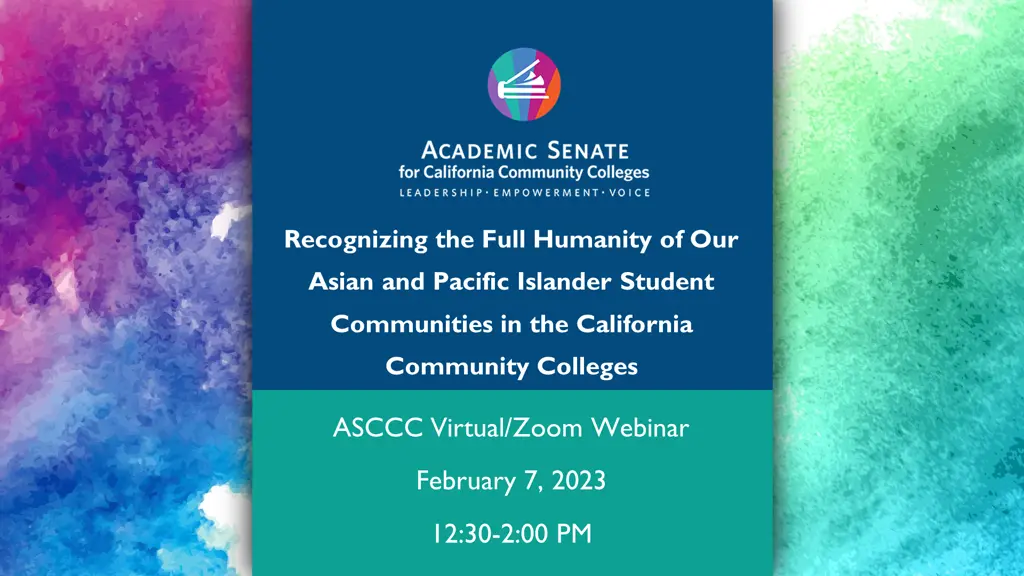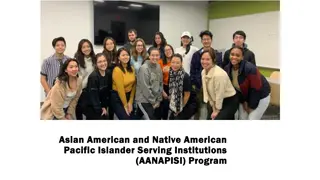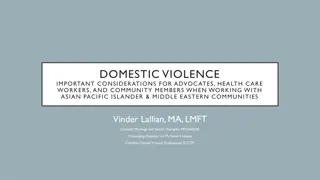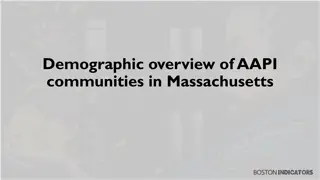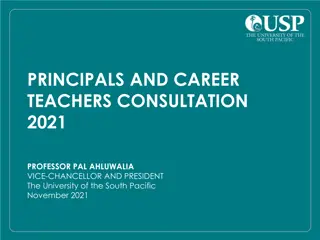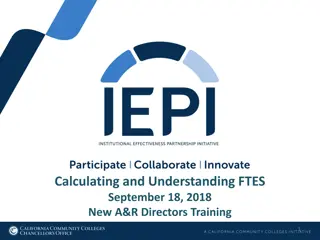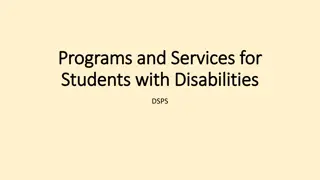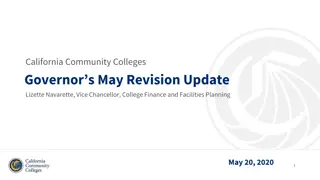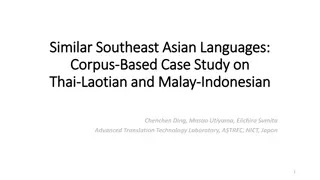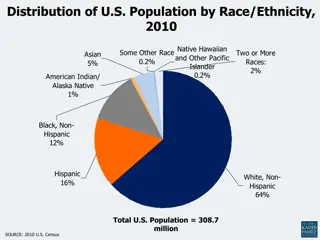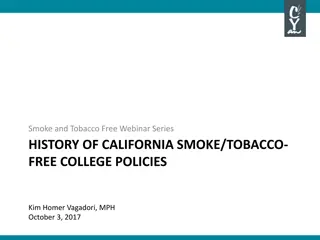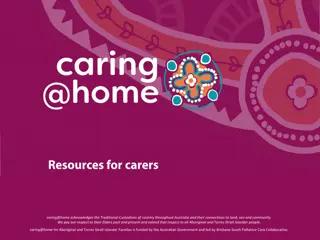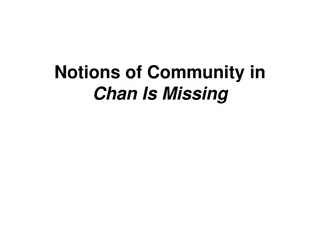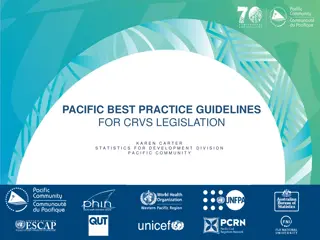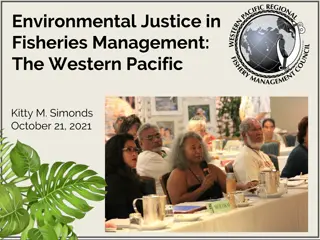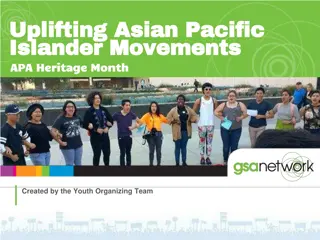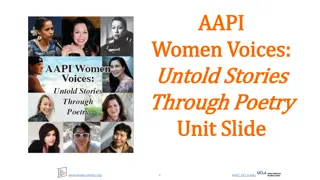Empowering Asian & Pacific Islander Students in California Colleges
Explore support strategies for Asian & Pacific Islander students in CA community colleges, addressing challenges and racial incidents post-pandemic. Discuss pedagogical approaches and student services for better campus inclusivity.
Download Presentation

Please find below an Image/Link to download the presentation.
The content on the website is provided AS IS for your information and personal use only. It may not be sold, licensed, or shared on other websites without obtaining consent from the author. Download presentation by click this link. If you encounter any issues during the download, it is possible that the publisher has removed the file from their server.
E N D
Presentation Transcript
Recognizing the Full Humanity of Our Asian and Pacific Islander Student Communities in the California Community Colleges ASCCC Virtual/Zoom Webinar February 7, 2023 12:30-2:00 PM
Presenters resi dent, San Jose City College Presentes: Dr. Rowena Tomaneng, President, San Jose City College Dr. Karen Chow, ASCCC Area B Representative, & De Anza College Faculty Dr. Aida D. Cuenza-Uvas, Director, Arise Program, Mt. San Antonio College Bethany Tasaka, ASCCC API Caucus Chair & San Bernardino Valley College Faculty Dr. Rowena M. Tomaneng, President, San Jose City College, & Founding Tri- Chair for CEO Racial Equity & Inclusive Task Force College P 2
Webinar Description Students who identify as Asian and Pacific Islander make up around 13% of California Community College students. Asian and Pacific Islanders are the fastest-growing ethnic group in California since 2011, growing an additional 25% statewide. After the pandemic, Asian and Pacific Islanders also experienced an explosive increase in racially motivated incidents. These increases should motivate faculty to look at what faculty can do on campus to support our Asian and Pacific Islander student communities. During this webinar, we will discuss some issues currently facing Asian and Pacific Islander students, and pedagogical and student services strategies and supports that faculty can take back to campus. 3
IDEAA Work in ASCCC Brief history of ASCCC s work and development of DEI (Diversity, Equity, Inclusion), now expanded to IDEAA--Inclusion Diversity, Equity, Anti-Racism, and Accessibility CCCCO DEI Integration Plan & Call To Action -- 60 Recommendations to our system that came out of CCCCO Workgroup with main stakeholder associations CCC Ethnic Studies graduation requirement (now in Title 5)--prompted by Resolution from field & Student Senate of CA Community Colleges, implemented in collaboration with CCC Chancellor s Office & CCC Ethnic Studies Faculty Council & CCC Curriculum Committee Rostrum articles Papers Equity Driven Systems: Student Equity & Achievement in the CA Community Colleges Toolkits DEI in Curriculum Model Hiring Principles and Processes Cultural Humility Tool Open Educational Resources Initiative IDEA Framework Part-Time Faculty Nexus IDEAA Liaisons (for local Senates) ASCCC Caucuses: Black Caucus, Latinx Caucus, API Caucus, LGBTQ+ Caucus, Womyn s Caucus ASCCC Equity Diversity Action Committee 5
IDEAA Work in ASCCC Adopted ASCCC Resolutions from the field: 09.03 Fall 2020: Ethnic Studies Graduation Requirement 03.03 Spring 2021: Denounce Anti-Asian American Pacific Islander (AAPI) Racism 03.05 Spring 2022: Disaggregate Asian and Pacific Islander Student Data 10.01 Spring 2022: Disciplines List: Asian American Studies (CCC Ethnic Studies Council) 6
AAPI students in CCC Approximately at least 13% of CCC students (431,070) identify as Asian, Filipino, or Pacific Islander As of latest CCCCO Datamart for most recent year available ( 21- 22): At least 43 CCCs have AAPI student populations at or above 10% Asian, Filipino, and Pacific Islander CCCCO site for AAPI students: https://icangotocollege.com/student-support- services/asian-american-and-pacific-islander- success 8
The Asian & Pacific Islander Caucus Meetings: Second Mondays 5 - 6 p.m. Zoom Contact: Bethany Tasaka, Chair btasaka@valleycollege.edu 9
History and Context of AANAPISI Programs & CA Investments in AANHPI Students in CCC, CSU, UC 10
History and Context of AANAPISI Programs AANAPISIs (Asian American Native American Pacific Islander Serving Institutions) received their designation as an MSI in 2007 through the College Cost Reduction and Access Act, which expanded in 2008 under the Higher Education Opportunity Act Response to the misconceptions related to the model minority stereotype and in recognition of the vast and diverse needs of underserved and underrepresented AAPI groups Involved decades of collaborative advocacy from community organizers, students, policy makers, and researchers Key leaders of legislation included Congressperson Robert Underwood (D-Guam), David Wu (D-OR), Senator Barbara Boxer (D-CA), Daniel Akaka (D-HI), the Congressional Asian Pacific American Caucus, and the White House Initiative on Asian Americans and Pacific Islanders 11
How do AANAPISI Programs Serve AANHPI Students? To provide multiple offerings that serve AANHPI students, AANAPISI programs have used the following effective strategies:: Data-Informed Assessment: Strategically developing or strengthening data-informed student programming in conjunction with assessment efforts of AANHPI students unique needs Culturally Relevant Curriculum: Collaborating with the institution s Asian American and/or Pacific Islands Studies program to update or create new courses that incorporate AANHPI history, communities, or issues into curriculum and pedagogical practices Connection to Families and Communities: Intentionally developing and implementing culturally relevant and community-based co-curricular programing specific to AANHPI student populations that connect and engage their families and communities Undergraduate Research Agenda: Providing undergraduate students opportunities to engage in research on topics relevant to AANHPI communities in order to build a pipeline for AANHPI students towards graduate education and/or research opportunities APIA Scholars Policy Brief September 2022-AANAPISI Impact and Growth Report 14
CA Investments in AANHPI Students in CCC, CSU, UC Research Findings on AANHPI Students from The Campaign for College Opportunity CCC AANHPI Student Achievement Program - 8 million ongoing CSU AANHPI Student Achievement Program - 8 Million ongoing UC Multimedia Textbook on AAPI Experience & Faculty Diversity -25 million UC AANAPISI Initiative - Launched fall 2022 15
Research Findings - The Campaign for College Opportunity s Report on AANHPI Students in CA Only 22% of NHPI Californians between the ages of 25 and 64 have a bachelor s degree, one of the lowest rates among all racial/ethnic groups in the state. In the wake of the COVID-19 global pandemic, Asian American and NHPI enrollment at the California Community Colleges plummeted by 20%. COVID-19 also took a heavy toll on Asian Americans and NHPI in the workforce, with unemployment rates rising faster than those for white Californians, from three percent to 15% for Asian Americans. Asian and NHPI workers have experienced a greater amount of long-term unemployment. Southeast Asians experience high levels of poverty, with more than one in three (33%) Hmong children in California living in poverty. Laotian and Cambodian children in California also have high rates of poverty at 25% and 22%, respectively. The UC admit rate for NHPI students (62%) is considerably lower than that for Asian Americans (78%). Relative to their overall share of California s Asian and NHPI populations, Filipinos, Native Hawaiians, Samoans, Guamanians or Chamorros, and Fijians are underrepresented within the UC system. The four-year high school graduation rate for NHPI students enrolling in 2017 was 82%, with less than half (44%) of graduates completing the A-G curriculum necessary for CSU and UC eligibility. 16
California Education Code Section 79511 AANHPI Student Achievement Program CCC (I) The Asian American, Native Hawaiian, and Pacific Islander (AANHPI) Student Achievement Program is hereby established at the California Community Colleges to provide culturally responsive services to enhance student educational experiences and promote higher education success for low-income, underserved, and first-generation AANHPI students and other underrepresented students. CCC Central Office under CCCCO and its auxiliary, Foundation for CCC working in collaboration with the CA Commission on Asian Pacific islander Affairs and stakeholder groups such as APAHE. Five positions already posted: Director, Program manager, 2 program specialists, coordinator 43 CCCs are AANAPISI eligible w/majority also HSIs 17
California Education Code Section 89297.1 - AANHPI Student Achievement Program CSU (1)The Asian American, Native Hawaiian, and Pacific Islander (AANHPI) Student Achievement Program is hereby established at the California State University to provide culturally responsive services to enhance student educational experiences and promote higher education success for low-income, underserved, and first-generation AANHPI students and other underrepresented students. Intent of Legislature that CSU coordinate/work with CCC CSU Chancellor s Office has RFP out to the 23 campuses to house the Central Office. Campus must be AANAPISI eligible and have experience serving AANHPI students 14 campuses are AANAPISI eligible: Maritime, San Francisco, East Bay, San Jose, Sacramento, Stanislaus, Fresno, San Luis Obispo, Northridge, Los Angeles, Long Beach, San Diego, Fullerton, Pomona 18
UC Open Access AAPI Multimedia Textbook The UCLA Asian American Studies Center has received $10 million in funding to develop a free multimedia learning experience that will help teachers around the country fill a curricular gap about the histories, struggles, cultures and contributions of Asian Americans and Pacific Islanders. The AAPI Multimedia Textbook will feature an open-access, online platform with customizable chapters using visual, audio and archival artifacts that bring history to life. The curriculum will support educators at a time when California and other states have made ethnic studies a graduation requirement for some public high schools and colleges. The 2022 Social Tracking of Asian Americans in the U.S. Index found the contributions of Asian Americans continue to be invisible to much of the American public. 58% percent of Americans were unable to name a prominent Asian American and 42% were unable to name a significant Asian American historical moment more recent than the incarceration of Japanese Americans during World War II. https://newsroom.ucla.edu/releases/asian-american-studies-center-free-resource-high-school-teachers 19
UC AANAPISI Initiative Launched fall 2022 at UC Irvine Similar to UC Office of the President s HSI Initiative Creation of Systemwide Learning Community that brings together faculty, administrators, staff, and students at AANAPISI Convenings Strengthening system networks to better support AANHPI students Production of data and reports to disseminate internally and externally to the broader AANAPISI field 9 campuses eligible: Berkeley, Davis, Irvine, Los Angeles, Merced, Riverside, San Diego, Santa Barbara, Santa Cruz 20
Mt. San Antonio College Arise Program (AANAPISI) Framing our Conversation: Abby s Digital Story Part of our 2nd cohort of digital storytellers: Abby portrays the complexity of her Pacific Islander humanity while offering a context for educators who are a part of the California Community College system. SCAN to engage with Padlet. PADLET LINK: https://bit.ly/ASCC_API_Full_Humanity 22
AANAPISI @ Mt. SAC: Arise Program Our Timeline Eligible institutions: At least 10% API, 50% financially-needy - Competitive Applications for AANAPISI (Federal Title III) five-year grants Past: Two AANAPISI Part F awards (2011, 2016) Current: AANAPISI Part A Cooperative (partner: CPP) Institutionalization over time (unrestricted general funds, SEAP) 23
AANAPISI @ Mt. SAC: Arise Program Background and Context First grant established the Arise Program Grant activity areas: academic support, counseling intervention, student development, professional development, research/evaluation The new cooperative: transfer collaborative, community engagement, holistic support, academic development Two Pronged: Support Services & Culturally Affirming Space 24
AANAPISI @ Mt. SAC: Arise Program Student Services Support Counseling (in-person and virtual) Educational Advisement Peer mentors ASAP! Letter Transfer and Scholarship Assistance (collaboration, access, and technology) Tutoring in the Equity Center Resource Referrals (Basic Needs, food pantry, Laptop Loans, book rentals, student health services, emergency funds request) School supplies (backpacks, school supplies, blue books, scantrons) 25
AANAPISI @ Mt. SAC: Arise Program Culturally-Affirming Space Digital Stories Taking Circles: Fale Fono, SEAA Space, Ates & Titas, NHPI male athletes, TPacific Islander women, FilipinX Leadership Development (3-day, off-site end of Summer) Educational Field trips (e.g., Manzanar, Delano, JANM, PIEAM) Collaborations Knowledge is Power Learning Communities Programming: Student Equity Speaker Series, El Centro, Pride Conferences (APAHE, NASPA WRC) Pasifika Family Education Day APIDA Family Day (new-May 2023) Cultural Series: Lunar New Year, API Heritage Month, FilipinX History Month Workshops: Anti-Asian racism guest speakers, community talking circles in response media coverage (Monterey Park, AANAPISI Week 2021 SCAN for Programming Samples 26 Atlanta Shootings)
Mt. San Antonio College Arise Program (AANAPISI) Recognizing the full humanity of our Asian Pacific Islander Students: Relationships and Representation matters As far as coming into class and just being the only one in class and then, you know, when the teacher calls your name in roll, they don t know how to say it . . . And then, you, like, off the bat, you don t even want to be in there . . . It s, like, little stuff like that chases them away. It makes them feel like they don t belong, and then nowhere in the curriculum, you re gonna find yourself in there. Alfred (Male, 28 years, Samoan) I d say a sense of family, like, you don t have to be, like, blood related, but you technically say even though we re not blood related, there is that sense of family that maybe even if you re struggling, like, with the program, they re still gonna care for you because sometimes the other staff members will give up on you if they see that . . . you re wasting my time. . . . That s when a sense of family would be the thing, even though you keep failing and failing, they re still gonna keep trying. John (Male, 22 years, Tongan) 27
Recommendations for Effective Practices To Identify and Serve Underrepresented AAPI students \ 1. Educators should create courses, lessons, and assignments that allow students to learn about issues that exist within their own cultural communities. 2. Educators should foster connections with community leaders and organizations and collaborate with them to construct more culturally relevant curricula, such as community service learning. 3. Educators should consider ways to integrate culturally relevant courses into structured learning communities, in which students take multiple courses together as a cohort. 4. Educators should commit adequate physical space for AANAPISI programs. 5. Educators working in AANAPISI programs should spend time developing relationships with other support offices on their campuses and in the larger AAPI community. Such relationships can ensure that AANAPISI educators have the capacity to refer AAPI students to the supports, services, and opportunities that they require. 6. Educators working in AANAPISI programs should create professional development opportunities to educate other professionals on campus about the AANAPISI program and the significance of culturally relevant practices. Museus et al . (2018) .HOW ASIAN AMERICAN AND NATIVE AMERICAN PACIFIC ISLANDER SERVING INSTITUTIONS ARE CREATING THE CONDITIONS FOR STUDENTS TO THRIVE 28
Resources - Organizations ASCCC IDEAA (Inclusion, Diversity, Equity, Anti-Racism and Accessiblity) Toolkits and Resources: https://asccc.org/asccc-inclusion-diversity-equity-anti-racism-and-accessibility-ideaa-tools ASCCC Caucuses (API, Black, Latinx and others): https://asccc.org/communities/caucuses AERA Research on the Education of Asian and Pacific Americans: https://www.aera.net/SIG094/REAPA-SIG-94 CARE-National Commission on Asian American and Pacific Islander Research in Education, http://care.gseis.ucla.edu/ APAHE (Asian Pacific Americans in Higher Education): http://apahenational.org/; APAHE National Conference in Oakland CA, April 26-28 AAAS (Association for Asian American Studies) conference in Long Beach in April 2023: https://aaastudies.org/announcements/2023-conference-theme-sustainable-publics/ CCC Ethnic Studies Faculty Council: http://www.cccesfcouncil.org/ The Coalition (A2MEND, APAHE, COLEGAS): https://www.thecoalitioncc.org/ 29
Resources - Publications & Research An In-Depth Look At Asian American, NHPI Students Community College Daily, American Association of Community Colleges, June 1, 2022. https://www.ccdaily.com/2022/06/an-in-depth-look-at-asian-american-nhpi-students/ Cuenza-Uvas, Aida and Toso-Lafaele Gogue, Demeturie. "An Ethic Of Care In Student Affairs: Humanizing Relationships And Asserting Cultural Values At An AANAPISI" UCLA AAPI Nexus, Volume 19: 1&2(2022) Fong, T., Marimba,D., Nguyen, M. (2020). Models of Change: AANAPISIs in Action (spring) http://www.aapinexus.org/2022/03/28/models- of-change-aanapisis-in-action-spring-2022/ The State of Higher Education For Asian American, Native Hawaiian, and Pacific Islander Californians, Campaign for College Opportunity, May 2022 ASIAN AMERICAN AND NATIVE AMERICAN PACIFIC ISLANDER SERVING INSTITUTIONS (AANAPISIs): A RESOURCE GUIDE, University of Pennsylvania Center for MSIs https://cmsi.gse.rutgers.edu/sites/default/files/AANAPISI%20Guide.pdf Fong, T., Maramba, D (2020). Transformative Practices for Minority Student Success: Accomplishments of Asian American Native American Pacific Islander-Serving Institutions, Stylus Publishing, LLC. Mike Hoa Nguyen (2021). Building Capacity at Asian American and Native American Pacific Islander-Serving Institutions (AANAPISI): Transforming the Educational Experiences of Asian American and Pacific Islander (AAPI) Students, The Journal of Higher Education, DOI: 10.1080/00221546.2021.1996170 30
Q&A and Exit Survey Please complete this Exit Survey to help us plan follow-up Webinars: Thank you! For more information: info@asccc.org Dr. Rowena Tomaneng: Rowena.Tomaneng@sjcc.edu Dr. Aida Cuenza-Uvas: acuenzauvas@mtsac.edu https://docs.google.com/forms/d/e/1FAIpQLSfaSaA 3Kup0PD2MLrcfHiWc6xO- 8x0Q7LQSXYtvSChCAB9Yfg/viewform 31
